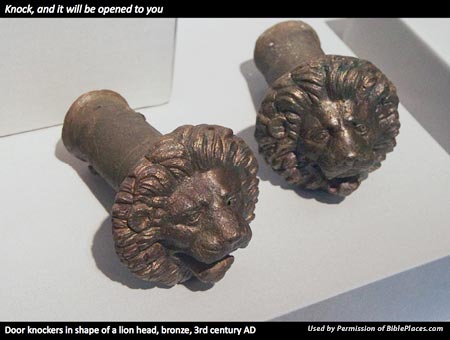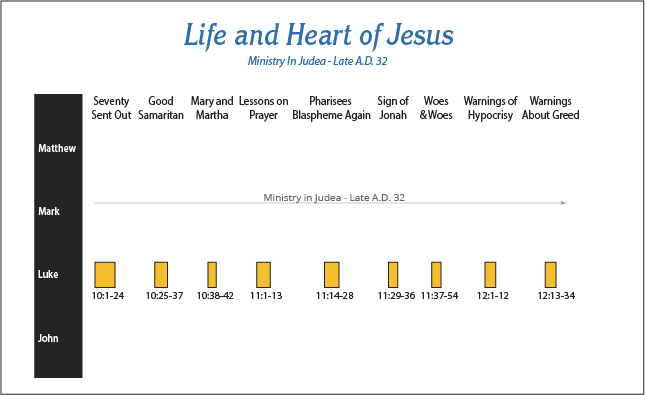
Someone has said that even atheists pray to God in a crisis. Prayer often occurs at the moment of crisis when no one else can help and the person realizes the complete helplessness of his or her situation. Another person has said that there are no atheists in foxholes when the bombs are exploding, the bullets are whistling as they fly close to the ears and fellow soldiers are dying. The truth is that some atheists do not pray because they are foolish according to Psalm 14:1. Ironically, some Christians do not pray in a crisis either. They are almost like an atheist in a crisis because they try to work out all of the details on their own. Many a soldier and civilian who have reached out in desperation to God and pleaded to be rescued have not been disappointed. Some individuals make promises to God in an attempt to motivate Him to help them. Unfortunately, some do not follow through with their commitment and then He disciplines them. If you pray, why do you pray? Do you usually pray in a moment of crisis such as when your child or spouse is dying, in a time of fear or when you have a serious disease or disability, for example? When do you seriously pray with passion because your situation is so desperate?
Parable of the Persistent Request
Our study is about a person who is desperate and passionately seeking help from a friend. You will discover that this person is highly motivated and extremely persistent until they get what they want. Our study is Luke 11:5-13. Here is the opening verse to this parable,
Then He said to them, “Suppose one of you has a friend, and goes to him at midnight and says to him, ‘Friend, lend me three loaves; for a friend of mine has come to me from a journey, and I have nothing to set before him’ . . .” Luke 11:5-6 (NASB)
Jesus begins the parable with a statement, “Suppose you have a friend . . .” Notice that He does not assume that anyone in the crowd has a friend. The sad truth is that people do not have friends. Some do not have friends even when they have a spouse since spouses are not always friends. Unfortunately, it is more common for men to not have any friends other than their spouse. They spend most of their lives as independent warriors fighting with everyone and as a result having a friend is difficult. Proverbs has much to say about how to have friends (Proverbs 12:26; 13:20; 17:17; 22:24-25; 27:6, 17; 18:24; 27:10, 14; Amos 3:3; John 15:13; James 4:8).

Then Jesus added that this person, who does have a friend, goes to their friend and asks for some bread. The Greek word that is translated as bread does not refer to large loaves of bread but to small rolls, buns or flat cakes. The Greek word is artos. The request was simple, but it suggests that the host was either poor or a procrastinator. Now we are told that this guest had arrived from a journey, but we are not told when the guest arrived. Maybe he arrived earlier in the day or late at night. We do not know if the host waited until midnight to ask his neighbor for some bread. Now it is possible that his guest arrived late at night. Then when he checked for bread, he did not find any bread. Bread was part of the breakfast Jesus prepared for His disciples in John 21:12-13. It was a common food. In that situation, one might excuse him, but shouldn’t he have already made more bread since it was commonly eaten at breakfast? He should have checked the night before. This man appears to be a procrastinator.
Then Jesus focused on the man’s friend who we will discover does have some bread.
. . . and he will answer from within, “Do not bother me; the door is now shut, and my children are with me in bed. I cannot get up and give you anything”? Luke 11:7 (NASB)
The friend replied with “Do not bother me!” Our English word “bother” is translated from two Greek words kopos parecho which literally means “causing troubles.” That is, the friend is implying that this procrastinator is once again imposing upon her and asking for the unusual and making inconsiderate requests. The procrastinator is causing trouble again! Have you ever known someone who always asks for unusual favors? They were always imposing upon you and maybe demanding? In a minute we will discover that this procrastinator starts demanding that his request be satisfied.
The friend’s excuse was an exaggeration and it is understandable since it is midnight. Apparently this friend had responded to previous requests. The friend is not a woman since the pronouns and the word for friend are masculine in the Greek text. His children were in bed and were most likely snuggled around him and his wife. He wants to be left alone and be allowed to sleep. Yet, there must have been a great deal of loud talking between the procrastinator and the friend in order to hear the procrastinator inside the house. The procrastinator was inconsiderate and cared only about himself. His friend knew it and did not want to be troubled.

Observations From The Parable
Then Jesus begins to explain the meaning of the parable.
I tell you, even though he will not get up and give him anything because he is his friend, yet because of his persistence he will get up and give him as much as he needs. Luke 11:8 (NASB)
Notice first, the friendship relationship between the two men was not enough to motivate the man in the house to help the loud-mouthed procrastinator.
Second, notice that constant nagging accomplished what friendship could not accomplish. There are individuals in life who have discovered this principle. They operate that way. A woman once said that she knew how to get people to give her what she wanted. She had discovered that if she just keeps asking, the person will eventually give her what she wants. She was proud she had discovered this worked. She is an illustration of the message of the parable. Someone who keeps asking will receive.

Application – Keep Asking
Next, Jesus crystallizes this message by stating the principle.
So I say to you, ask, and it will be given to you; seek, and you will find; knock, and it will be opened to you. For everyone who asks, receives; and he who seeks, finds; and to him who knocks, it will be opened. Luke 11:9-10 (NASB)
Jesus states the principle three different ways. First, if we ask, we will receive. Second, if we seek, we will find. Third, if we knock, it will be opened. The Greek tenses of “ask,” “seek” and “knock” are all present participles. This tense implies continual and repeated activity. That is, Jesus is teaching us the serious person continually asks, seeks and knocks until he or she receives, finds and has it opened to us. We will discover the purpose or the application of this parable in verse 13. But the message that we are to take from the parable is that the serious person will eagerly and continuously go after whatever they want.
In verse 13, we are told that God the Father responds to us with good gifts. Jesus tells us that we are like the procrastinator who desperately needs some bread. Yes, maybe our need is the result of our lack of planning ahead. Maybe the need is due to an unexpected tragedy or issue, but the illustration and message is that if we keep asking, seeking and knocking, we will receive some bread. We will discover in verse 13 that answers to prayer is a secondary lesson and not the primary point. What is truly amazing is that we are encouraged to boldly ask God as if He was the man in the house who did not want to grant his friend’s request. But the primary message is, “Are we serious?”

Application – Receive What Is Best
Next Jesus explains that God the Father only gives gifts that are good for us. He does this by reminding us that the vast majority of parents give good gifts to their children and not snakes or scorpions.
Now suppose one of you fathers is asked by his son for a fish; he will not give him a snake instead of a fish, will he? Or if he is asked for an egg, he will not give him a scorpion, will he? Luke 11:11-12 (NASB)
The illustration is clear and obvious. Most parents give gifts that are beneficial and safe to their children. Even non-Christians do that. However, recently we heard about a woman in Florida who intentionally let a snake bite her one year-old daughter and then posted the video that she recorded of her daughter being bitten by the snake on her Facebook.[1]
But she is not your normal parent. Jesus is talking about parents who love their children. The child asks for something but the parent does not intentionally give a dangerous gift. Sometimes parents do not give the gift that is requested because they know that it would not be the best for the child. It is common today for teenagers to ask their parents for a car or some other very costly gift. Most parents ask themselves if their child’s request is the best thing for them. It is the unusual parent who gives their child a car at age 15. It is the rare parent who gives their children everything that they want. It is the rare parent who wants to be their child’s friend, rather than the adult in their life.
Our Good Deeds Are Inferior
Now Jesus applies the parable and the illustrations to God the Father and prayer. This was the goal of His teaching.
If you then, being evil, know how to give good gifts to your children, how much more will your heavenly Father give the Holy Spirit to those who ask Him? Luke 11:13 (NASB)
In the first part of this verse we are reminded that God sees us as evil. The Greek word is poneros which means “morally corrupt or evil.” That is, God sees every person as being in an evil condition continuously. We are not good people. In Luke 18:19 Jesus tells us that only God is good. No one else is good. Therefore when He says that we know how to give good gifts, we should not think that giving good gifts somehow implies we are good people or that the giving to others earns us favor with God. Yes, we give good gifts, but our goodness is bad compared to God. We do not gain us favor with God by anything we do. We do not earn the right to go to heaven by our inferior good deeds. There is no good action that is good enough to earn us the right to go to heaven. Even if we did a million or a billion good deeds, we will not earn a right to go to heaven. Romans 3:12 tells us,
All have turned aside, together they have become useless; There is none who does good, There is not even one. Romans 3:12 (NASB)
That is, our good is not good in the ultimate sense of being good. There is always something wrong with our goodness. Our goodness can never earn us heaven.
Now we do not want to miss Jesus’ point in this verse due to this digression. Jesus’ message is that we do good in some sense, but in comparison to us the good our holy God does we are vastly inferior. His goodness cannot be compared to our inferior goodness.
Heavenly Father Gives The Best Gift
Then Jesus makes a surprising statement and it is the purpose of the parable and His illustrations. He says that the greatest gift the heavenly Father gives is the Holy Spirit. Jesus is not talking about Christians asking for the Holy Spirit in order to speak in tongues or to obtain some blessing. He is referring to non-Christians becoming Christians. He was speaking to a crowd of unbelievers whose sins were not yet forgiven; consequently, they had not yet been declared to be holy before God. They were morally corrupt and not yet forgiven. They had not yet begged God to forgive their sins. They had not yet been asking, seeking and knocking persistently in order to be saved from the penalty of their sins.
Throughout the New Testament men and women are urged to seek God and believe in Christ in order to have their sins forgiven. For example, John 1:12 says,
But as many as received Him, to them He gave the right to become children of God, even to those who believe in His name . . . John 1:12 (NASB)
In this verse we are told that if we receive Christ, we become sons of God. The Greek word that is translated as “received” is lambano. The word just simply means “to take.” That is, we must reach out to Christ and take Him. We must do something. In Romans 10:13 we are told that God does not play favorites. Anyone who calls on the Lord will be saved.
For there is no distinction between Jew and Greek; for the same Lord is Lord of all, abounding in riches for all who call on Him; for “Whoever will call on the name of the Lord will be saved.” Romans 10:12-13 (NASB)
In Acts 2:21 we read,
And it shall be that everyone who calls on the name of the Lord will be saved.
In 1 John 3:23 we are told
. . . This is His commandment, that we believe in the name of His Son Jesus Christ, and love one another, just as He commanded us. 1 John 3:23 (NASB)
Do you see that we must ask the Father in order to be saved? In John 7:37-39 Jesus clearly states that anyone who believes in Him receives the Holy Spirit.
Now on the last day, the great day of the feast, Jesus stood and cried out, saying, “If anyone is thirsty, let him come to Me and drink. He who believes in Me, as the Scripture said, ‘From his innermost being will flow rivers of living water.’” But this He spoke of the Spirit, whom those who believed in Him were to receive; for the Spirit was not yet given, because Jesus was not yet glorified. John 7:37-39 (NASB)
One who has the Holy Spirit dwelling within them is a Christian (Romans 8:9; Ephesians 1:13) and this is the greatest gift that God the Father can give anyone. It is the greatest gift because it determines where you will exist the rest of eternity. We are only a puff of air in this life and eternity is next.
Therefore, what do you value greatly? This is an important question that we often miss. We so highly value times of pleasure, travel, family and friends that we sometimes ignore God. What do you value? In the previous chapter, Luke 10, Jesus’ disciples were excited that they were able to cast out demons. But in Luke 10:20, Jesus told them that instead they should be rejoicing that their names were recorded in heaven. Going to heaven is more important than any fun or pleasure in this life. Jesus’ message is that the greatest gift the Father can give anyone is eternal life which comes by faith in Him. Faith is not a work; it is simply trust. The greatest gift is not your husband or wife either. The most valuable possession you have is not your children or a parent. The great possession that you have is eternal life with God. The Father is the giver of this incredible gift.
John MacArthur wrote the following,
To those who ask for a gift, He gives the giver; to those who ask for an effect, He gives the cause; to those who ask for a product He gives the source; to those seeking comfort He gives the comforter (Acts 9:31); to those seeking power He gives the source of power (Acts 1:8); to those seeking help He gives the helper (John 14:26); to those seeking truth He gives the Spirit of truth (John 16:13); to those seeking “love, joy, peace, patience, kindness, goodness, faithfulness, gentleness, self-control” (Gal. 5:22-23) He gives the producer of all those things. The indwelling Holy Spirit (Rom. 8:9, 11; 1 Cor. 6:19; 2 Tim. 1:14) is the source of every good thing in the Christian’s life (Eph. 3:20).[2]

Conclusion
This study is not primarily about prayer but about a person who eagerly and earnestly with all their heart seeks salvation or heaven. With the parable of the procrastinator and the friend in the house, Jesus makes the point that if we want anything from God the Father, we must eagerly seek it with all our hearts. That is, we must desperately want it. Then with the illustration of the parent who gives good gifts to the son, Jesus teaches us that God the Father gives only good gifts to those who ask, and the best gift He gives is the Holy Spirit. Then the last verse (verse 13) is the application which is that if you want the best gift God the Father gives, then you must desperately want it and God the Father will give you this good gift – the best of gifts!
This same principle is revealed in Jeremiah 29:12-14 where we are told,
Then you will call upon Me and come and pray to Me, and I will listen to you. “You will seek Me and find Me when you search for Me with all your heart. I will be found by you,” declares the Lord . . . Jeremiah 29:12-14 (NASB)
Notice, that God says we seek and search with all our heart. Did you notice the repetitive idea of seeking and searching? We must seek God and search for Him. The point is we must be serious! And the point is stressed again when we are told that we are to search with all our hearts. That is, one must be extremely serious in our desire to be saved from one’s sins. The person who just wants to add God to their life and never change their behavior is not seriously seeking heaven. The person who asks once, searches briefly or knocks a few times on the door will never receive the bread of life. Jesus said,
I am the living bread that came down out of heaven; if anyone eats of this bread, he will live forever . . . John 6:51 (NASB).
Only Jesus Christ gives eternal life. Those who want to live the rest of their eternity in heaven must desperately want Jesus Christ.
Earlier in Jesus’ ministry He gave two parables. The first one was about “treasure hidden in the field” (Matthew 13:44) and the second one was about a “pearl of great value“ (Matthew 13:45). In each parable, someone gives up everything they have in order to buy the field or the pearl. In each parable, the treasure and the pearl is symbolic of heaven. Consequently, the point of both parables is that heaven is like treasure in the field or a pearl of great value and that those who want to go to heaven will do anything to get there. One who desperately asks, seeks and knocks, digs and looks for heaven will receive it.
How does a person gain eternal life? It can be obtained only by believing in Christ – not by working (Ephesians 2:8-9). Just as the man who was asking for a gift of bread from his neighbor, we must ask for our sins to be forgiven and for the gift of heaven. We gain heaven by desperately wanting it and asking God the Father for eternal life. This is the only way to heaven. We cannot obtain heaven by working or doing anything else. Just listen to Jesus’ words!
This passage is another biblical basis for praying for our salvation. We are told that if we ask, seek and knock, we will receive the Holy Spirit in response. Titus 3:4-5 teaches us that the Holy Spirit is the One who transforms us and gives us new spiritual life. Romans 10:12-13 also teaches us to call on Him. That is, someone who wants to be saved from their sins should pray, asking to be saved.
Application To Prayer
Is there any application to our prayer life? Yes, we are encouraged to seriously ask, seek and knock on heaven’s door when we pray. But notice that if you ask for something that is not good for you, such as a “spiritual snake,” God will not give it to you. In 1 John 5:14 we are told that if we ask for something according to His will, we will receive it. So, be earnest in your prayer life. But do not try to manipulate God thinking that by much praying you can manipulate God into giving you anything that you desire.
James 5:16 summarizes the application to prayer,
The effective prayer of a righteous man can accomplish much. James 5:16 (NASB)
The Greek word for “effective” is energeo. The verb is a present participle implying that prayer is effective when it is made by a righteous man who repeatedly and seriously makes the same requests, but not for the purpose of manipulating God (Matthew 6:7-8). That is, God responds to the righteous man or woman who seriously and urgently seeks for something with all their heart and according to God’s will.
References
1. CBSNEWS (www.cbsnews.com/news/florida-woman-let-snake-bite-baby-police-say/)
2. John MacArthur. Luke 11-17, The MacArthur New Testament Commentary. Moody Publishers. 2013. p. 57.